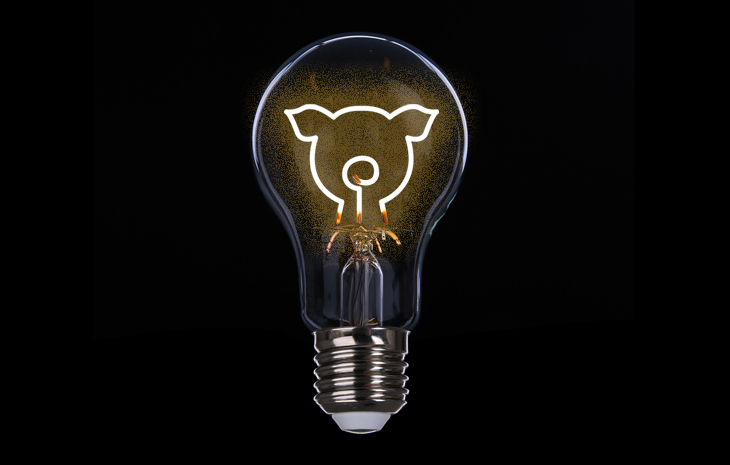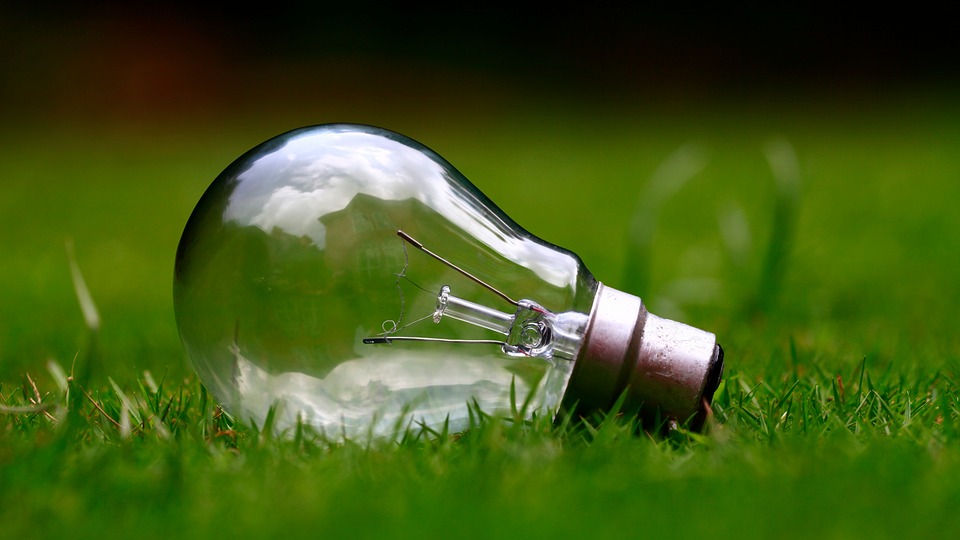The Vegan Society’s Vegan Trademark acts as an assurance to vegans worldwide that a particular product is suitable for those following a vegan lifestyle. Since 1990, The Vegan Society has worked tirelessly to register thousands of products with the Vegan Trademark and that iconic sunflower has helped to ease the shopping process for consumers around the globe.
As vegans, you are to likely take an active interest in the source of your food, cosmetics and other everyday products. You want to be sure that as far as practicable and possible, non-human animals have not been harmed in the creation of items you purchase. However, one of The Vegan Society’s latest Vegan Trademark registrations focuses on a product that consumers probably don’t frequently consider the origin of, but that almost all of us utilise on an everyday basis. When cooking a delicious plant-based meal or researching vegan-friendly footwear on our laptops, how often do we stop to consider the impact of the electricity that powers our endeavours? Do we really know where it comes from?
The decision to register Ecotricity’s electricity with the Vegan Trademark comes after it emerged that the majority of electricity suppliers in the UK purchase or produce energy that has been created using the by-products of factory farming. This means that without even knowing it, vegan consumers may be indirectly supporting factory farming.

Non-vegan electricity
In Britain, there are two principal sources of non-vegan electricity - anaerobic digestion (AD) and biomass. Factory farmed animals, fish body parts and slaughterhouse residues are all known components in the supply chain of some electricity from AD and biomass sources. These sources fall under the umbrella of ‘renewable energy’ and this phrase may be used as a blanket term to cover up some nasty practices. Renewable energy sources that do not involve the use of non-human animals do exist - wind and solar energy are good examples of this, and these are probably the sources that customers most readily associate with the term ‘renewable energy’.
As can be expected, the energy suppliers are not exactly forthcoming with this information when it comes to communicating with their customers, so you may be surprised to hear that even some ‘green’ energy companies (those that source their energy completely from renewable sources) have been found to be using non-vegan sources for their supply. In fact, this practice is extremely widespread among energy suppliers; four out of the Big Six suppliers have biomass and AD in the supply, along with many smaller suppliers. So although only 1% of the electricity produced in Britain is made this way, its widespread adoption by energy companies means that around 60% of the British population is affected.
How do you tell the difference?
It can take quite a bit of digging to discover which energy suppliers obtain their energy from non-vegan sources as there is no requirement for the company to openly declare it. One way to find this out is by using REGOs as the starting point. REGOs, or Renewable Energy Guarantees of Origin, are part of a scheme administered by Ofgem (the British government’s regulatory body for gas and electricity) that certifies that an energy supply is renewable.
Ofgem has an open-access database that lists all REGOs, the suppliers that use them and the source the energy comes from. From this, it is possible to trace back to what type of substance is fed into the biomass or AD stations and determine if animals are used in this process. However, this can be a long and convoluted process which very few consumers are likely to know how to navigate. This is why Ecotricity is calling for far more transparency from energy companies.

A different way
Ecotricity have a long history of taking a hard stance on ethical issues, often going against what is accepted as the ‘norm’. The company was founded in 1995 by long-term vegan, Dale Vince, and was the first company in the world to offer green electricity.
Sustainability is core to Ecotricity’s values and they recognise that veganism is a fundamental element of a sustainable lifestyle. This is evidenced by their long-running partnerships with vegan charities such as ourselves, and through their work with their sister organisation, Forest Green Rovers Football Club, which was the first football club in the world to have their menu registered with The Vegan Society’s Vegan Trademark. Ecotricity’s environmental policy states that they will not work with any organisations directly involved in factory farming, animal slaughter, animal testing or anything else they deem to be unethical.
In this latest development, The Vegan Society’s Vegan Trademark has been awarded due to Ecotricity’s ability to evidence that 100% of the energy they generate and purchase comes from a combination of onshore and offshore wind and hydro – none of which use animals or animal by-products at any point in the production process.
It is important to point out that unfortunately all energy is essentially mixed up in the National Grid, so there is no way to completely guarantee that animal-free sourced electricity is used to power your home. However, The Vegan Society’s Vegan Trademark acts as a signpost to those who do not want to fund non-vegan practices. This is an important development for consumers, who deserve to be armed with the full facts in order to be empowered enough to make such an important decision.
If you’re thinking about switching to Ecotricity, use this link and Ecotricity will donate up to £60 to The Vegan Society.
The views expressed by our bloggers are not necessarily the views of The Vegan Society.


Comments
Ecotricity Blog - Thank You!
Biomass
Great news